Year 1
The English curriculum is built around the three interrelated strands of language, literature and literacy. Teaching and learning programs should balance and integrate all three strands. Together, the strands focus on developing students' knowledge, understanding and skills in listening, reading, viewing, speaking, writing and creating. Learning in English builds on concepts, skills and processes developed in earlier years, and teachers will revisit and strengthen these as needed.
In Year 1, students communicate with peers, teachers, known adults and students from other classes.
Students engage with a variety of texts for enjoyment. They listen to, read, view and interpret spoken, written and multimodal texts designed to entertain and inform. These encompass traditional oral texts including Aboriginal stories, picture books, various types of stories, rhyming verse, poetry, non-fiction, film, dramatic performances and texts used by students as models for constructing their own texts.
The range of literary texts for Foundation to Year 10 comprises Australian literature, including the oral narrative traditions of Aboriginal and Torres Strait Islander Peoples, as well as the contemporary literature of these two cultural groups, and classic and contemporary world literature, including texts from and about Asia. Literary texts that support and extend Year 1 students as independent readers involve straightforward sequences of events and everyday happenings with recognisably realistic or imaginary characters. Informative texts present a small amount of new content about familiar topics of interest and topics being studied in other areas of the curriculum. These include decodable and predictable texts which present a small range of language features, including simple and compound sentences, some unfamiliar vocabulary, a small number of high-frequency words and words that need to be decoded phonically, as well as illustrations and diagrams that support the printed text.
Students create a variety of imaginative, informative and persuasive texts including recounts, procedures, performances, literary retellings and poetry.
(source: www.australiancurriculum.edu.au)
Achievement Standard
Receptive modes (listening, reading and viewing)
By the end of Year 1, students understand the different purposes of texts. They make connections to personal experience when explaining characters and main events in short texts. They identify that texts serve different purposes and that this affects how they are organised. They describe characters, settings and events in different types of literature.
Students read aloud, with developing fluency. They read short texts with some unfamiliar vocabulary, simple and compound sentences and supportive images. When reading, they use knowledge of the relationship between sounds and letters, high-frequency words, sentence boundary punctuation and directionality to make meaning. They recall key ideas and recognise literal and implied meaning in texts. They listen to others when taking part in conversations, using appropriate language features and interaction skills.
Productive modes (speaking, writing and creating)
Students understand how characters in texts are developed and give reasons for personal preferences. They create texts that show understanding of the connection between writing, speech and images.
They create short texts for a small range of purposes. They interact in pair, group and class discussions, taking turns when responding. They make short presentations on familiar topics. When writing, students provide details about ideas or events, and details about the participants in those events. They accurately spell high-frequency words and words with regular spelling patterns. They use capital letters and full stops and form all upper- and lower-case letters correctly.
(source: www.australiancurriculum.edu.au)
- Plus Plan
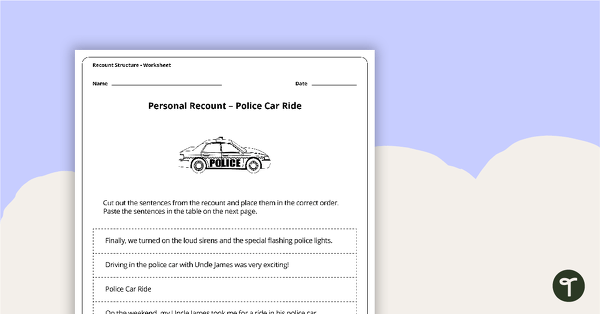
Personal Recount Sequencing Activity - Police Car Ride
A worksheet to use in the classroom when learning the sequence of a personal recount.
- Plus Plan
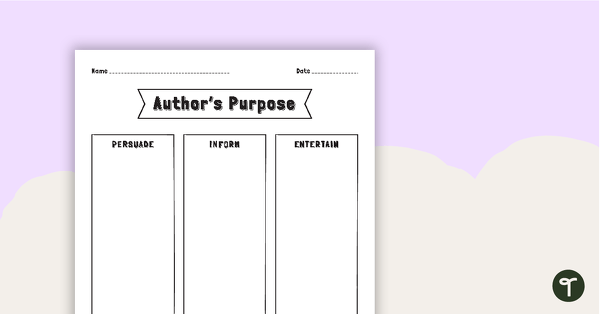
Author's Purpose - Sorting Worksheet
A teaching resource to help teach your students the different reasons authors may write.
- Plus Plan
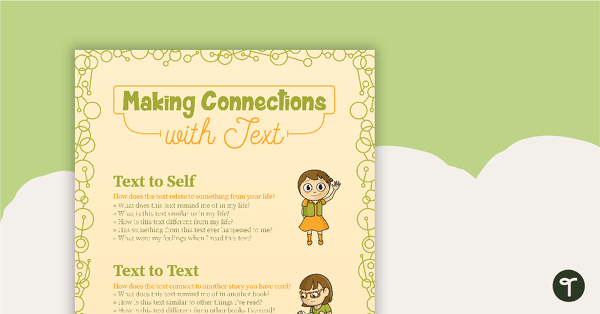
Making Connections with Text Poster
A poster showing the concepts of text to self, text to text and text to world.
- Plus Plan
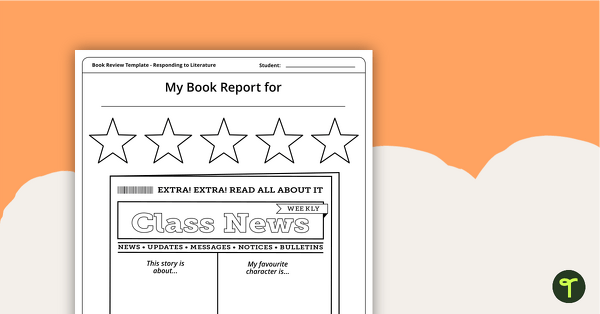
Newspaper Themed - Book Report Template and Poster
A fun newspaper themed poster with 3 book report templates to use when responding to literature.
- Plus Plan
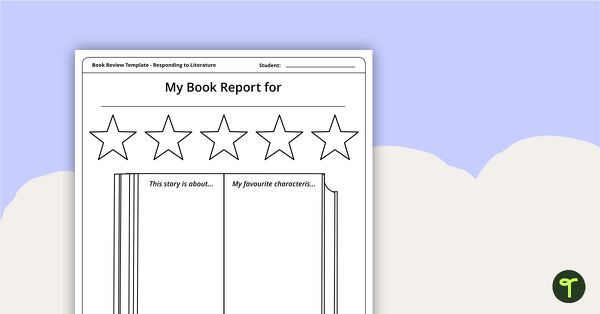
Book Worm Themed - Book Report Template and Poster
A fun book worm themed poster with 3 book report templates to use when responding to literature.
- Plus Plan
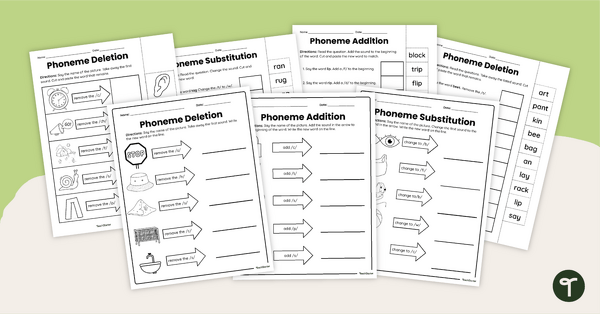
Phoneme Manipulation Worksheet Pack
Use these phoneme manipulation worksheets to help students develop their phonemic awareness skills.
- Plus Plan
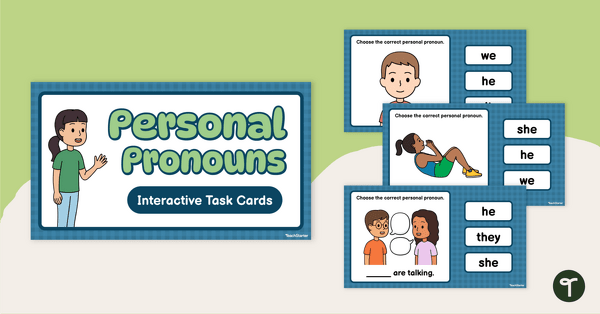
Personal Pronouns Interactive Task Cards
Use this online personal pronouns game to get your students identifying and using these important parts of speech.
- Plus Plan
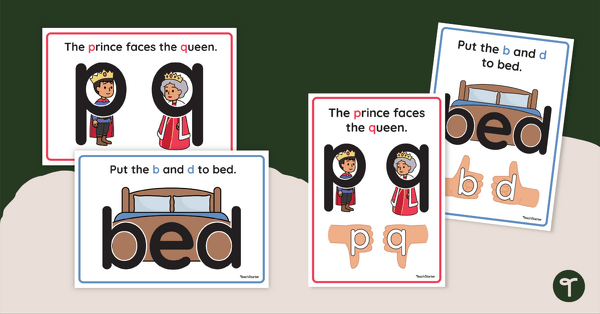
Letter Reversal Posters
Display these posters highlighting the differences between b, d, p and q letterforms.
- Plus Plan
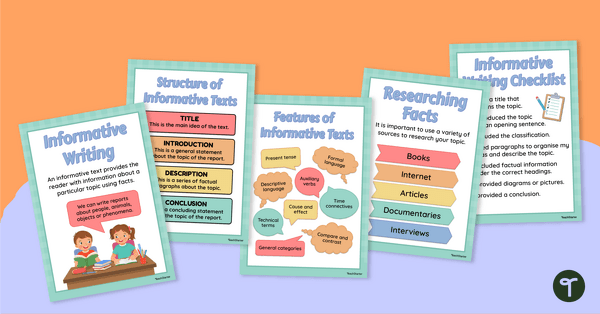
Informative Writing Posters
Display this set of 5 information report posters in your classroom during your informative writing unit.
- Plus Plan
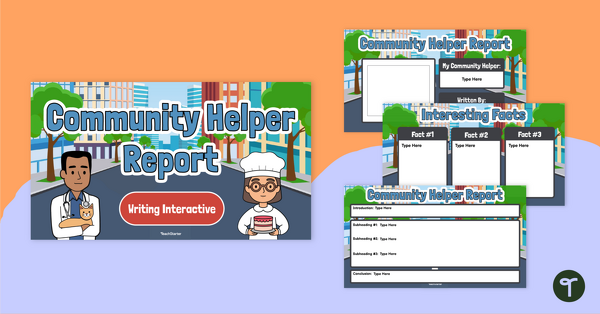
Community Helper – Digital Report Writing Activity
Use this community helpers interactive activity to model the purpose and structural elements of information reports.
- Plus Plan
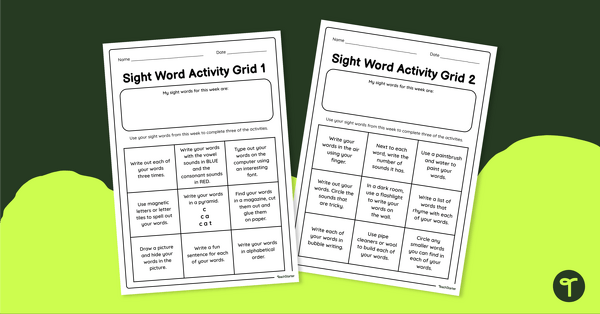
Sight Word Activity Worksheets
Help your students practise their sight words at home with this set of two sight word activity grids.
- Plus Plan
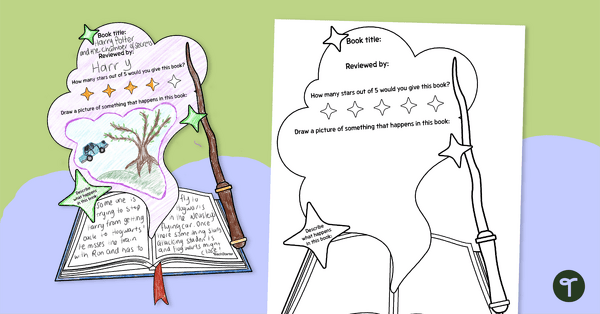
Magic-Themed Book Review Template
Create a display of student book reviews during Book Week 2024 with this magic-themed book review template for lower years students.
- Free Plan
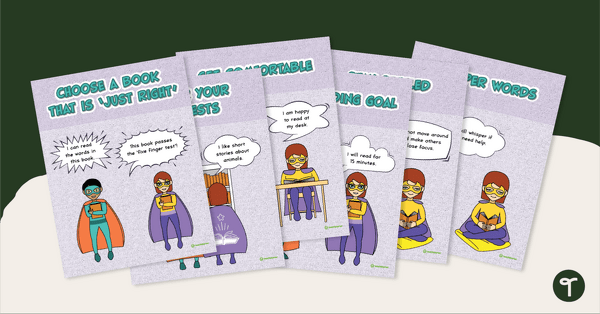
Super Stamina Reading Posters
Highlight strategies students can use to read for longer periods of time with this printable poster set for a school library or classroom.
- Plus Plan
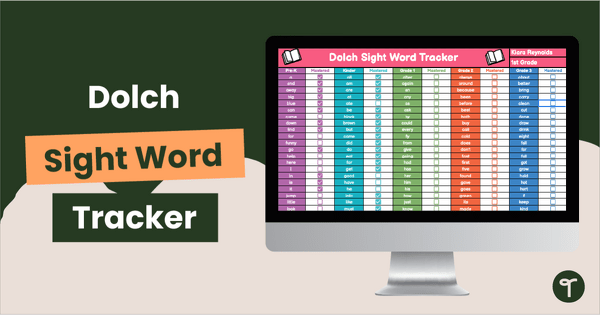
Dolch Sight Word Tracker - Google Sheets
Track mastery of Dolch Sight Words using a digital Google Sheets Sight Word tracking spreadsheet.
- Plus Plan
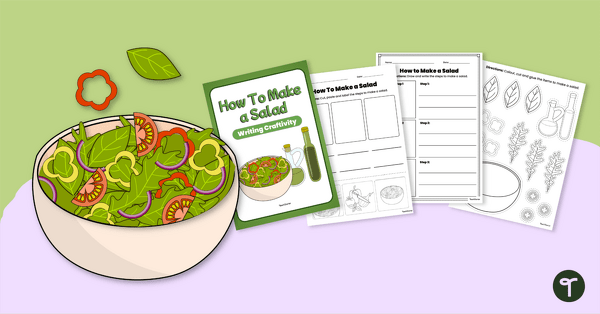
How to Make a Salad – Procedural Writing Craftivity
Use this engaging craft activity on making a salad to teach your students all they need to know about procedural writing!
- Plus Plan
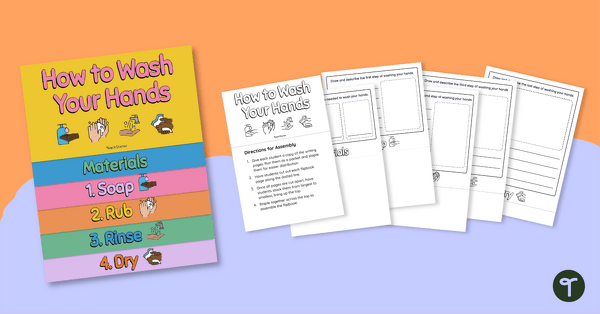
How to Wash Your Hands Flipbook
Use this “How to Wash Your Hands” procedural writing activity to help familiarise your students with the structural elements of procedure texts.
- Plus Plan
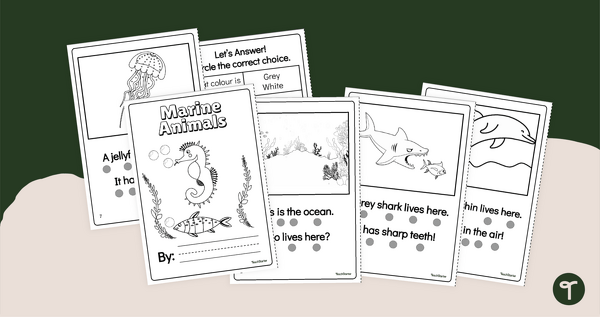
Marine Animals - Year 1 Leveled Reader
Learn about the creatures under the ocean’s surface with a printable leveled reader book about marine animals.
- Plus Plan
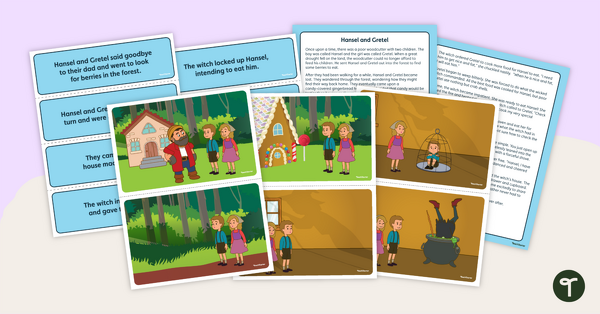
Hansel and Gretel Retelling Activity Cards
Teach your students about retelling with this set of sequencing cards for Hansel and Gretel.
- Plus Plan
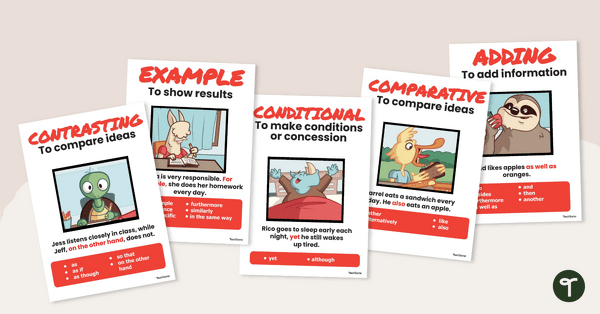
Text Connectives Posters for Lower Primary Students
Display this set of 8 grammar posters to teach students about text connectives and conjunctions.
- Plus Plan
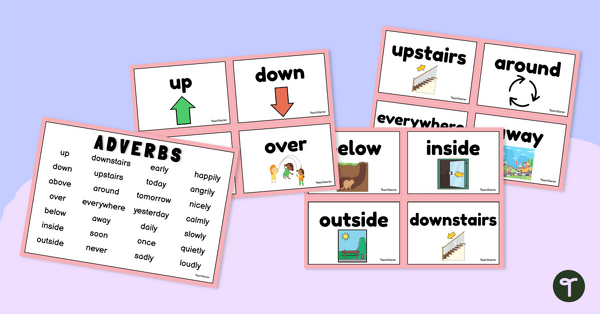
Adverbs Drama Game
Enjoy this fun drama game with your students as you teach them that adverbs describe how, when or where a verb is happening!
- Plus Plan
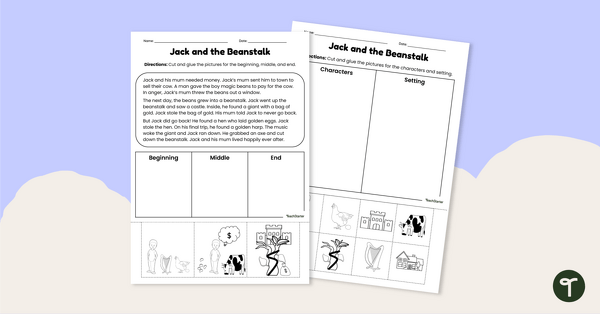
Story Elements Cut and Paste Worksheets – Jack and the Beanstalk
Explore story characters, settings and main events with this set of cut-and-paste worksheets based on a well-known fairy tale.
- Plus Plan
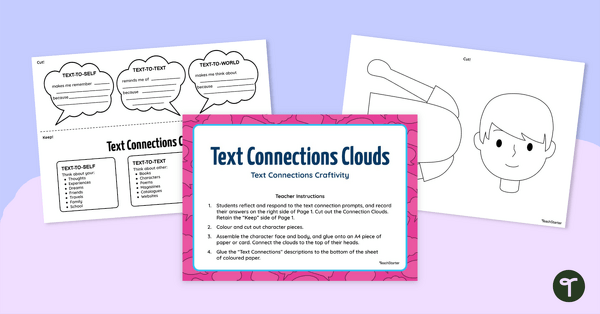
Text Connections Clouds Craftivity
Enjoy this fun literature craftivity with your students, which prompts them to answer comprehension questions for making personal connections to text.
- Plus Plan
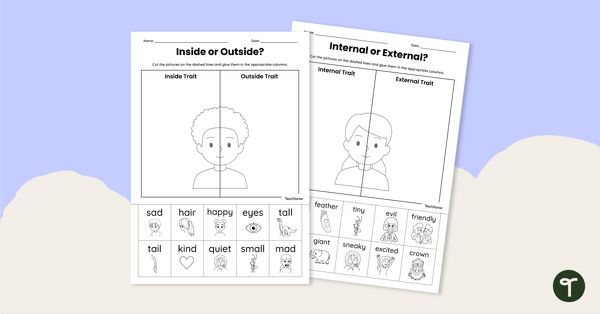
Internal and External Character Traits - Cut and Paste Worksheet
Explore the internal and external traits of story characters with this differentiated cut-and-paste worksheet.
- Free Plan
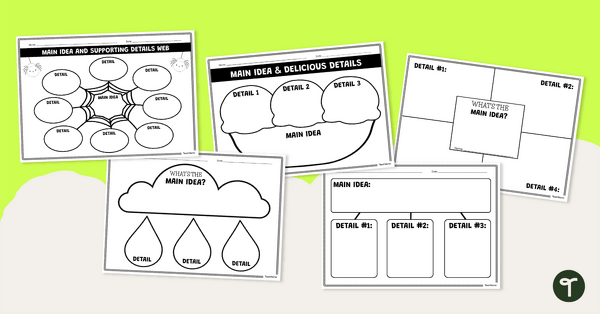
Finding the Main Idea - Graphic Organiser Templates
A worksheet to use when teaching students how to find the main idea of a text.
- Plus Plan
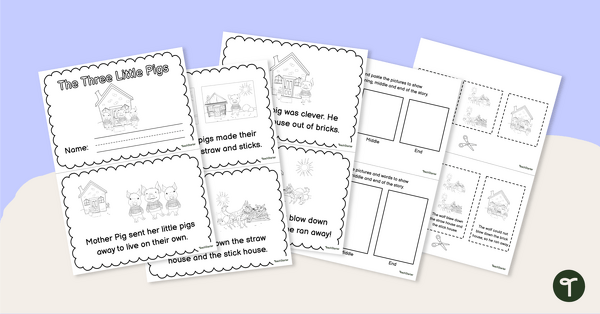
Beginning, Middle and End Mini-Book - The Three Little Pigs
Teach your students about the beginning, middle and end of a story with this mini-book retell of The Three Little Pigs.
- Plus Plan
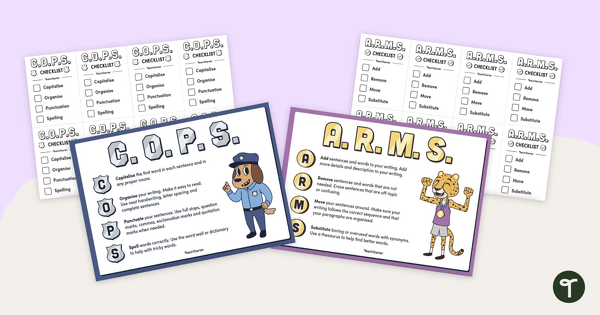
ARMS and COPS - Editing Posters and Checklists (Landscape)
Encourage your students to proofread and edit their writing using the C.O.P.S. and A.R.M.S acronyms with a pair of printable writing posters.
- Plus Plan
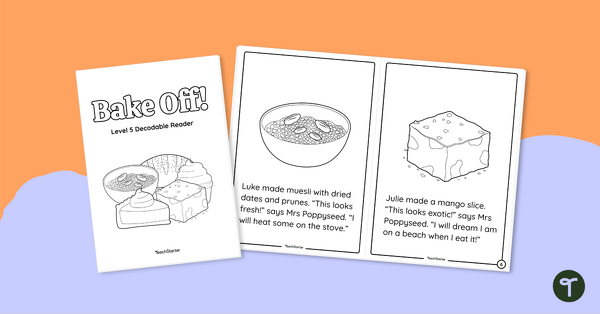
Bake Off! - Decodable Reader (Level 5)
Develop confident, successful readers with this phonics-based, printable decodable book.
- Plus Plan
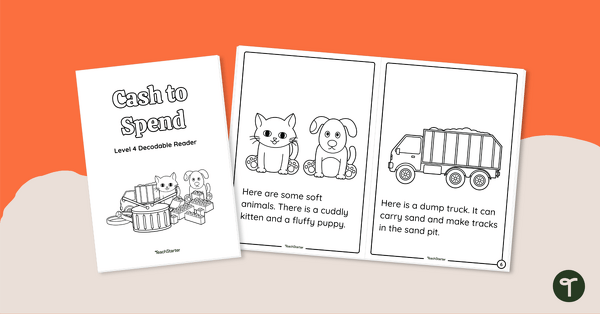
Cash to Spend - Decodable Reader (Level 4)
Develop confident, successful readers with this phonics-based, printable decodable book.
- Plus Plan
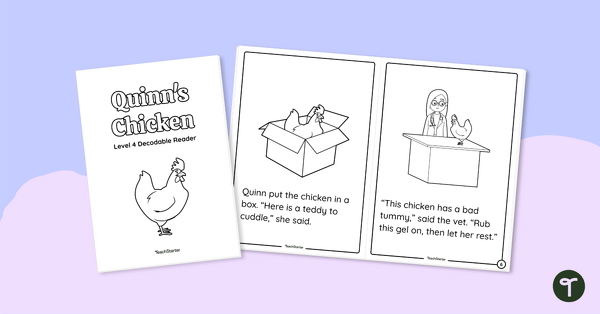
Quinn's Chicken - Decodable Reader (Level 4)
Develop confident, successful readers with this phonics-based, printable decodable book.
- Plus Plan
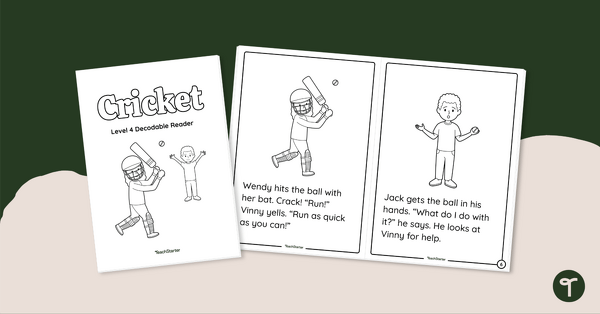
Cricket - Decodable Reader (Level 4)
Develop confident, successful readers with this phonics-based, printable decodable book.
- Plus Plan
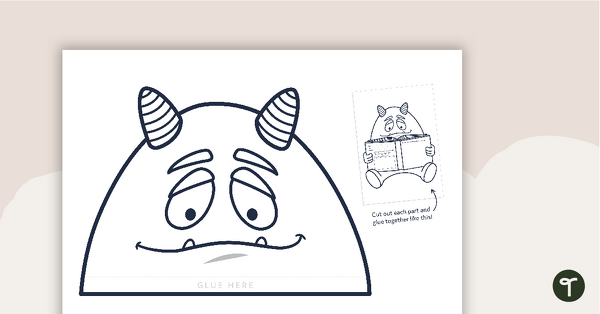
Monster Book Report Template
A cute monster-themed book report template.
- Plus Plan
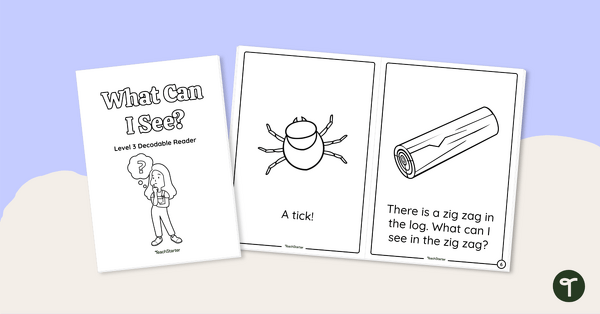
What Can I See? - Decodable Reader (Level 3)
Develop confident, successful readers with this phonics-based, printable decodable book.